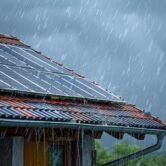As Nigeria grapples with persistent energy deficits, rising fuel costs, and the global push toward cleaner alternatives, solar energy is emerging as a practical and powerful solution. From Lagos to Lokoja, Kano to Calabar, a quiet but steady transformation is underway—homes, schools, hospitals, and even rural communities are turning to the sun to meet their electricity needs.
The Energy Crisis and the Need for Alternatives
Nigeria, Africa’s most populous country, has long struggled with inadequate electricity supply. The national grid provides power to less than 60% of the population, and even in urban areas, blackouts are a regular part of daily life. Businesses and households have relied heavily on diesel and petrol generators, which are expensive to run and environmentally harmful.
In a country that receives an average of 5–7 hours of peak sunlight daily, solar energy presents a logical and sustainable alternative. And now, with improved technology and falling costs of solar panels and inverters, it’s becoming more accessible.
The Rise of Solar Across Nigeria
The last five years have seen significant growth in Nigeria’s solar energy adoption. Startups, NGOs, and government programs have accelerated the deployment of solar systems:
- Pay-as-you-go solar companies like Lumos and Arnergy have introduced affordable financing for low-income families.
- Mini-grid projects have brought electricity to previously unserved rural areas, reducing reliance on kerosene lamps and firewood.
- Corporate offices and malls are installing rooftop solar arrays to slash energy bills and boost sustainability ratings.
Schools, hospitals, and even local government buildings in many states now run partially or fully on solar power.
Benefits That Go Beyond Electricity
Solar energy does more than just light up homes—it empowers entire communities. Here’s how:
- Economic growth: With stable electricity, small businesses can operate longer hours, and students can study at night.
- Health improvements: Replacing generators and kerosene lamps reduces indoor air pollution, preventing respiratory issues.
- Environmental gains: Solar energy helps reduce greenhouse gas emissions and dependence on fossil fuels.
According to the International Renewable Energy Agency (IRENA), Nigeria could generate up to 30% of its electricity from renewable sources by 2030, with solar playing a major role.
Challenges Slowing Down Wider Adoption
Despite its potential, solar energy in Nigeria still faces several hurdles:
- High upfront costs remain a barrier for many, especially without access to low-interest financing.
- Limited awareness and trust in solar solutions due to poor-quality installations or unreliable providers.
- Lack of government incentives and inconsistent policy support hinder private sector investment.
There’s also a need for stronger regulatory frameworks to ensure quality assurance and protect consumers from substandard products.
What the Road Ahead Looks Like
To fully harness the power of solar energy, Nigeria must commit to a coordinated approach involving government, private sector, and communities. Key strategies include:
- Incentivizing solar investment through tax reliefs, subsidies, and import duty waivers.
- Expanding public-private partnerships to support off-grid electrification in rural areas.
- Training and certification programs to grow a skilled solar workforce and ensure quality installation and maintenance.
Conclusion: A Brighter, Cleaner Future Is Within Reach
Solar energy is no longer just a backup option—it’s a viable, scalable solution to Nigeria’s electricity woes. As more Nigerians embrace the sun to power their lives, we move closer to an energy-secure, environmentally sustainable future.
With the right policies, partnerships, and public awareness, solar energy can light the way to a greener Nigeria—one panel at a time.





